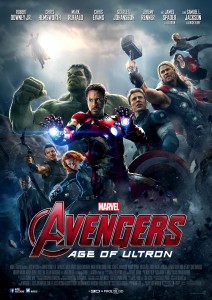Far from the Madding Crowd
Posted on April 30, 2015 at 5:45 pm
B+| Lowest Recommended Age: | Middle School |
| MPAA Rating: | Rated PG-13 for some sexuality and violence |
| Profanity: | Mild language |
| Alcohol/ Drugs: | Drinking and drunkenness |
| Violence/ Scariness: | Some violence including gun, character killed |
| Diversity Issues: | Class issues |
| Date Released to Theaters: | May 1, 2015 |
| Date Released to DVD: | August 3, 2015 |
| Amazon.com ASIN: | B00ZRBQTXO |

It may be a British costume drama based on a classic novel, but Thomas Hardy’s saga of a headstrong woman and the three marriage proposals from very different men is not the usual corsets and teacups. Far from the Madding Crowd is the story of Bathsheba Everdene (a radiant Carey Mulligan), an orphan who inherits a farm and announces to the staff, “It is my intention to astonish you all.”
What gives the story a vital, even modern tone is the independence of its heroine, who is often wrong, but who has good instincts and accepts the consequences of her mistakes and learns from them. There is romance and drama in the story, tragedy and betrayal, but it engages in a bracing fashion with issues of class, honor, and values. It is not much of a spoiler alert to say that Hardy favored those who were most connected to the land and nature.
It begins in 1870, when Everdene is at first a poor relative living on her aunt’s small farm. She had intended to take on the favorite profession of literary heroines: governess. But “she was far too wild,” nothing like the meek Jane Eyre. She rides straddling her horse, no sidesaddle. The very handsome farmer next door is Gabriel Oak (Matthias Schoenaerts, radiating quiet integrity) who presents her with a lamb and asks her to marry him. She likes him very much but turns him down. “I shouldn’t mind being a bride and having a wedding if I didn’t have to have a husband.”
Their positions are suddenly and dramatically changed. She inherits a farm, rising to the lower levels of the landed gentry. He loses his flock in a calamitous accident and is unable to keep the farm. As he is looking for work, he stops to put out a fire in what turns out to be Everdene’s new farm. She offers to hire him if the change in their positions will not be too awkward for him, and he agrees. Her next proposal is from her neighbor, a reserved and lonely older man named William Boldwood (Michael Sheen), who is not bold at all, but who was encouraged by a valentine Everdene sent him impulsively, not thinking he would take it seriously. Her third proposal is from an officer named Frank Troy (Tom Sturridge), who tells her she is beautiful, shows off his swordsmanship, and introduces her to sensual pleasures. He does not tell her he was supposed to marry someone else.
David Nicholls, who wrote the excellent miniseries adaptation of Hardy’s Tess of the d’Urbervilles, would have benefited from miniseries length for a story of this scope. It is rushed and abrupt at times. But Nicholls and director Thomas Vinterberg never let the story get musty or dated. It is firmly grounded in the most literal sense, always returning to the land as the source of what is good and true, and to the people who understand that as the real heroes and the ones who know what love can be.
Parents should know that this film includes sexual references and a non-explicit situation, violence, and sad deaths including a murder.
Family discussion: What was Bathsheba looking for? Why did it take her so long to figure that out? What appealed to her about each of her suitors? Why do you think this heroine inspired the name of “Hunger Games” heroine Katniss Everdeen?
If you like this, try: the earlier version with Julie Christie and the book by Thomas Hardy, and “My Brilliant Career”


